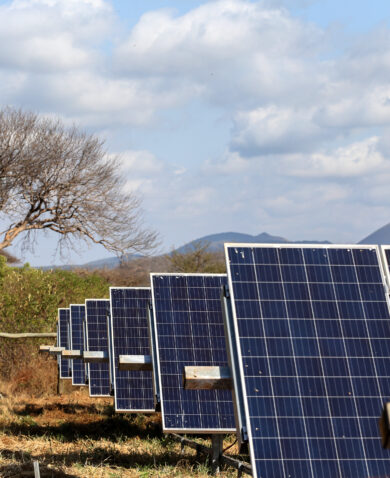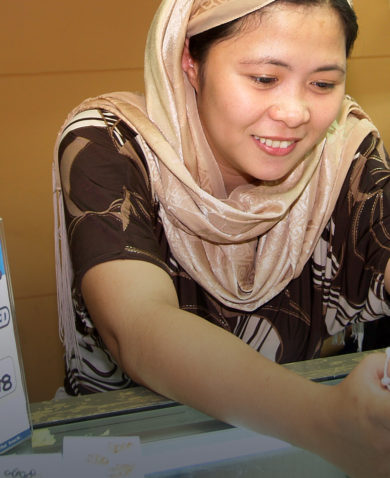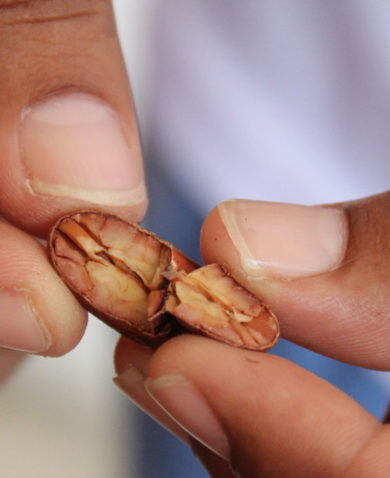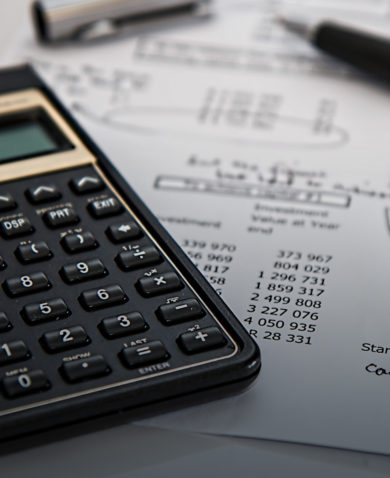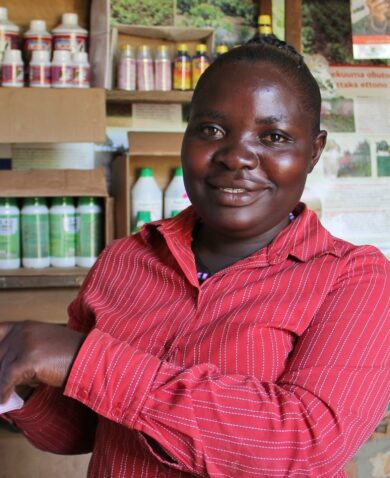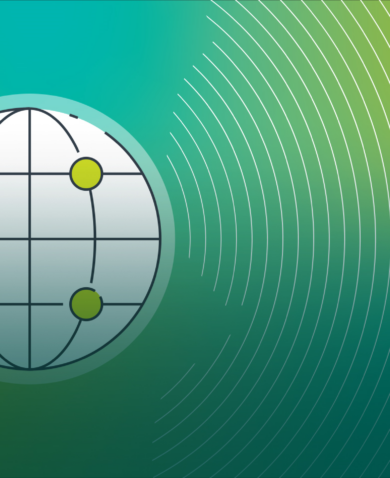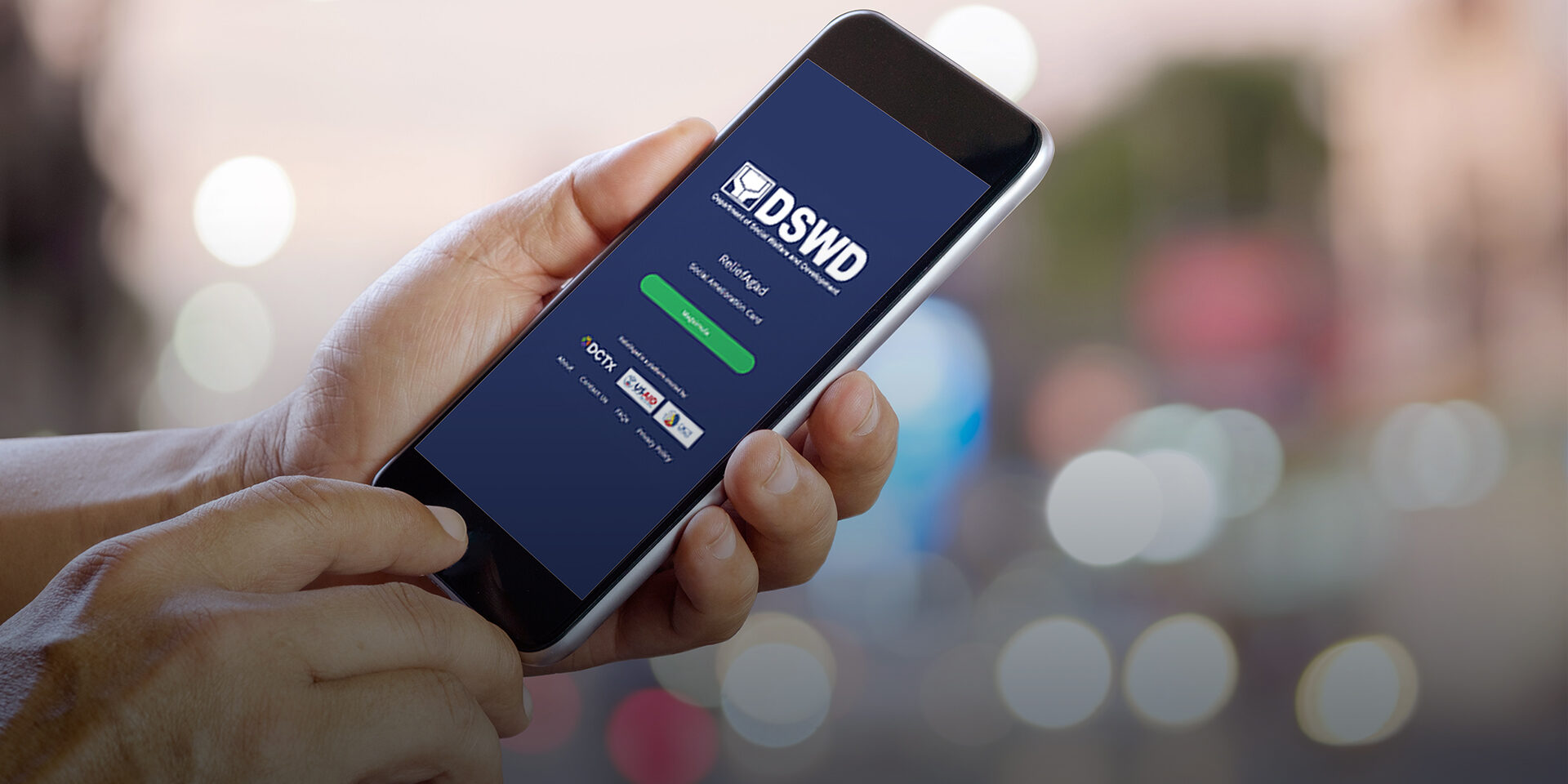
Relief Is Just an App Away in the Philippines .
August 13, 2020How does a country with a cash-based economy quickly provide subsidies during the COVID-19 pandemic and economic slowdown? In the Philippines, the government and the USAID E-PESO activity have collaborated with the private sector to create an app that provides fast financial relief to millions of people.

As with many citizens in the Philippines, Jesson Galvez’s job was affected by COVID-19. A resident of Trece Martires, he and his common law partner Divine Grace Penaflor sold used clothes but could not go out due to nationwide community quarantine.
“We had great difficulty,” Jesson said. “We have no other jobs, and we ended up selling things we owned just so we can buy food. Overall, it was very hard for us.”
Concerned about how he would support his family, Jesson learned about emergency cash subsidies distributed by the Social Amelioration Program (SAP) in the Department of Social Welfare and Development (DSWD). DSWD distributed the first tranche of SAP funds in May.
Jesson was among the first 18 million to receive funds. However, due to manual registration by DSDW, five million families were waitlisted. Other issues occurred nationwide, due also to the manual distribution of cash and the lack of beneficiary data. In one case, an entire community waived their benefits slots so others, in greater need, could get assistance. To better help low-income families affected by the pandemic, DSDW needed to address issues with manual registration and dispensing hard currency.
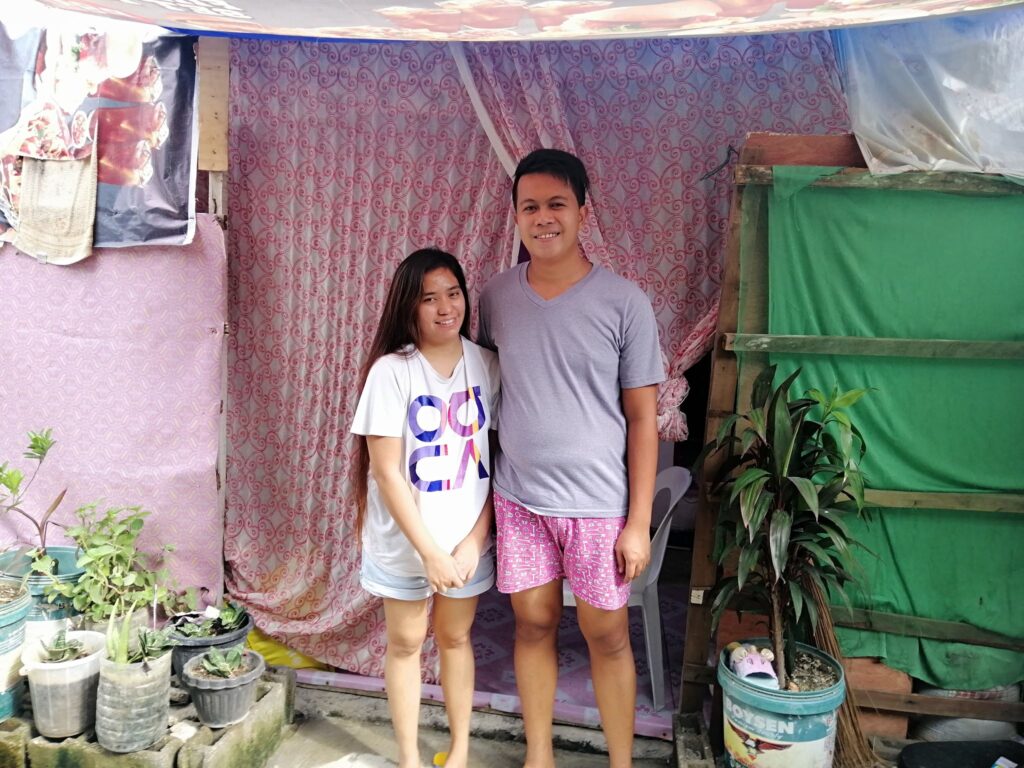
The Problem with Cash
Hard currency is not the best form of money during the COVID-19 pandemic when social distancing is essential. A single bill could pass through scores of hands in a typical day. Any other time, this would be socially accepted, but it has become a matter of concern now. The World Health Organization (WHO) recently encouraged people to use digital payment options as a deterrent to the spread of the coronavirus. In addition, with the manual distribution of cash, local government units (LGUs) require significant resources to secure and handle the bills, not to mention the importance of transparency and properly transporting the currency across the Philippines’ 7,641 islands.
Jesson remembered some of the challenges during the first tranche of manually distributed SAP funds. “I had to walk at least one hour to reach the place where they gave out the cash (a covered basketball court),” he said. “When I got there at 9:00 a.m., the line was already very long. I was afraid that there might have been a COVID positive person in the crowd.”
To receive SAP funds, citizens needed to complete a Social Amelioration Card (SAC). During the first tranche of funds, recipients submitted their data non-electronically and LGUs manually encoded or batch uploaded the data. The Philippine government believed it needed a more efficient 21st century solution.
A “Prompt” Digital Solution
To improve the distribution of emergency cash, the government of the Philippines approached the USAID E-PESO Activity (implemented by Chemonics) and Developers Connect Philippines (DEVCON) to create the ReliefAgad app. This app streamlines the capture of SAC data and dispersal of relief funds by using an e-wallet or bank account that enables DSWD to send aid directly to beneficiaries, using the e-payment systems of the regional banking industry.
The Philippine government sought the help of E-PESO due to USAID’s past work in the country. Since March 2015, E-PESO continues the progress of USAID’s Microenterprise Access to Banking Services projects, which ran from 1997 to 2012. As a result of that work to increase access to financial services in the Philippines, more than 700 bank locations dispersed $900 million in microfinance loans.
E-PESO, through its collaboration with local partners, field tested, designed, deployed, and provided overall project management for the ReliefAgad app (derived from the Filipino word for “prompt”). Meanwhile, DEVCON, a non-profit organization promoting Filipino IT talent, assembled a team of volunteer software developers and created the system.
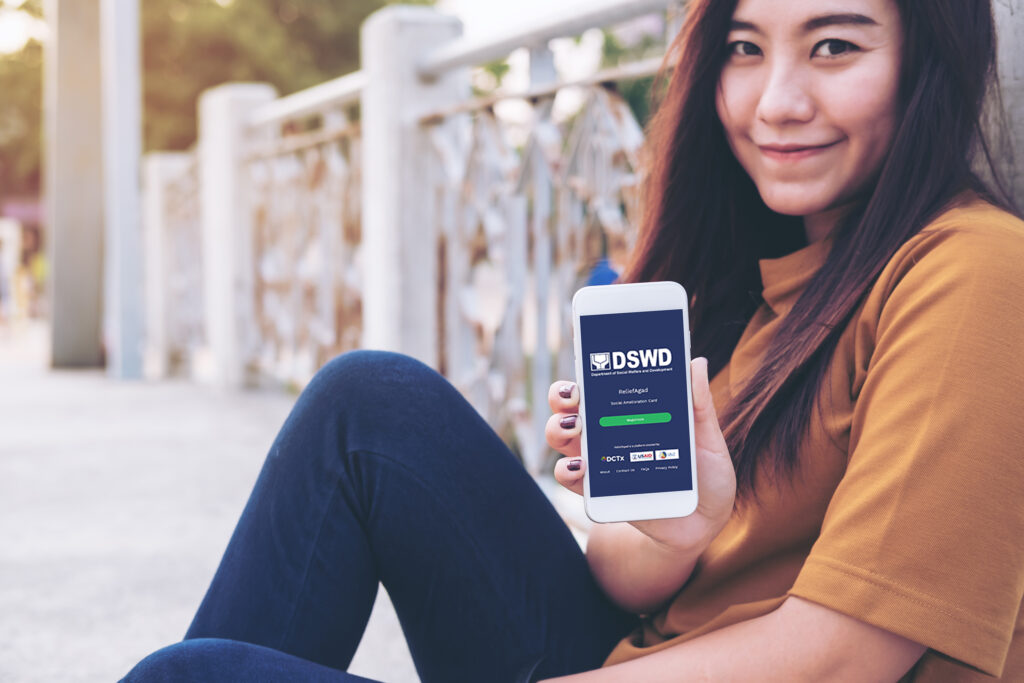
The app works by having recipients complete a SAC form, which contains a unique barcode. The recipient then scans the barcode using a smartphone and the app to confirm that the form is valid prior to encoding the individual’s personal information on the reliefagad.ph website. After registering their SAC form, the data goes directly to DSWD. The app also allows citizens to enroll their bank or e-money accounts for faster, direct deposit payments. DSWD receives fast, accurate information, while recipients receive their funds in a timely manner.
Joyce Villanueva, a manicurist from Kawit, Cavite, registered for SAC through the app. “It’s a good thing we learned about ReliefAgad,” she said. “We found the instructions easy, and we did not have a difficult time registering for it.”
Applicants who do not own a smartphone can use someone else’s to apply. As long as they have access to the phone number, they are registered for the one-time passcodes. To aid those beneficiaries with any app challenges, USAID has facilitated the development of a daily customer support hotline (8:00 a.m. to 6:00 p.m.), a Facebook Messenger chat facility, and a digital user guide.
The Value of Public and Private Partnerships
Beyond DEVCON providing software developers, the app’s creation involved feedback and resources from multiple public and private sector actors, which will ensure the digital beneficiary registration system will work for the current pandemic as well as for future emergency or social subsidy programs uses (see video below for more information about the design process for the app). Private-sector partners include Amazon Web Services (cloud services), PLDT Group and Smart Communications (website whitelisting), and SM Group and the BDO Foundation (for one-time password short message services). Meanwhile, the Department of Information and Communications Technology provided IT infrastructure and cybersecurity support. And banks and e-money issuers collaborated with the app team to identify ways to seamlessly process new accounts for app users.
ReliefAgad Is a Net Positive
As of August 3, 2020, a total of 8,979,360 beneficiary families nationwide (63%) have received subsidies through digital and manual payout. Registration for the app was closed as of June 25, with 4.3 million who registered then, and in mid-July the second tranche of disbursements began. Overall, responses from beneficiaries have been positive.
Roy Mendoza, a fisherman based in Binangonan, Rizal, was unable to sell his fish due to lockdown. “The second tranche through ReliefAgad registration was easy, faster, and safer because I did not have to mix with other people and be scared about COVID,” he said.
Myla Bautista, an egg seller in Morong, Rizal, was also unable to sell her eggs due to the community quarantine. However, through ReliefAgad, she invested the funds into her business. “I used part of the money as capital for restarting my egg and cooking oil business that I now sell at home and also in the market that opened recently.”
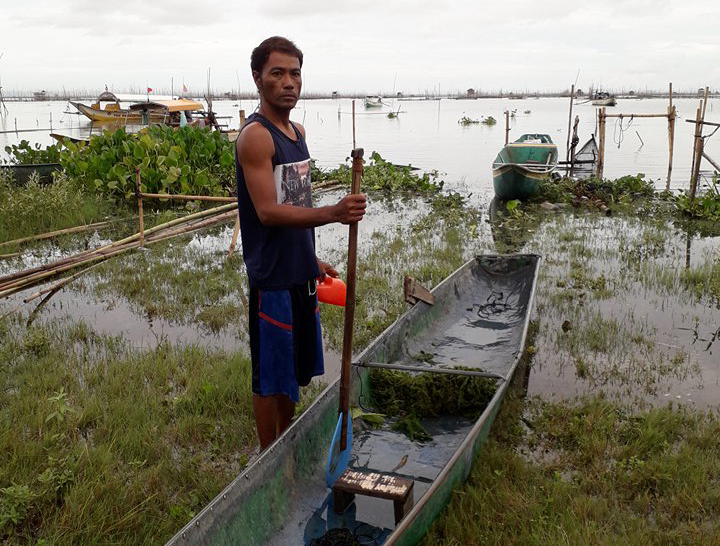
What Happens Next
The E-PESO Project is anticipated to end in February 2021; however, ReliefAgad was designed in collaboration with DSWD to ensure the agency has ownership of the app — in terms of management and knowledge of its value.
After USAID support ends, DEVCON will sustain the app, which it developed with no cost to DSWD. The non-profit will retain the IP rights to the system, with DSWD having unrestricted use in perpetuity.
It is uncertain how long people like Jesson will need SAP funds from DSWD, but at least he and his family will receive help in a more efficient and consistent way.
“ReliefAgad is a blessing and helped us a lot because it made everything very convenient and fast,” Jesson said. “The money has helped us meet the immediate needs of my family. We are very thankful and grateful.”







